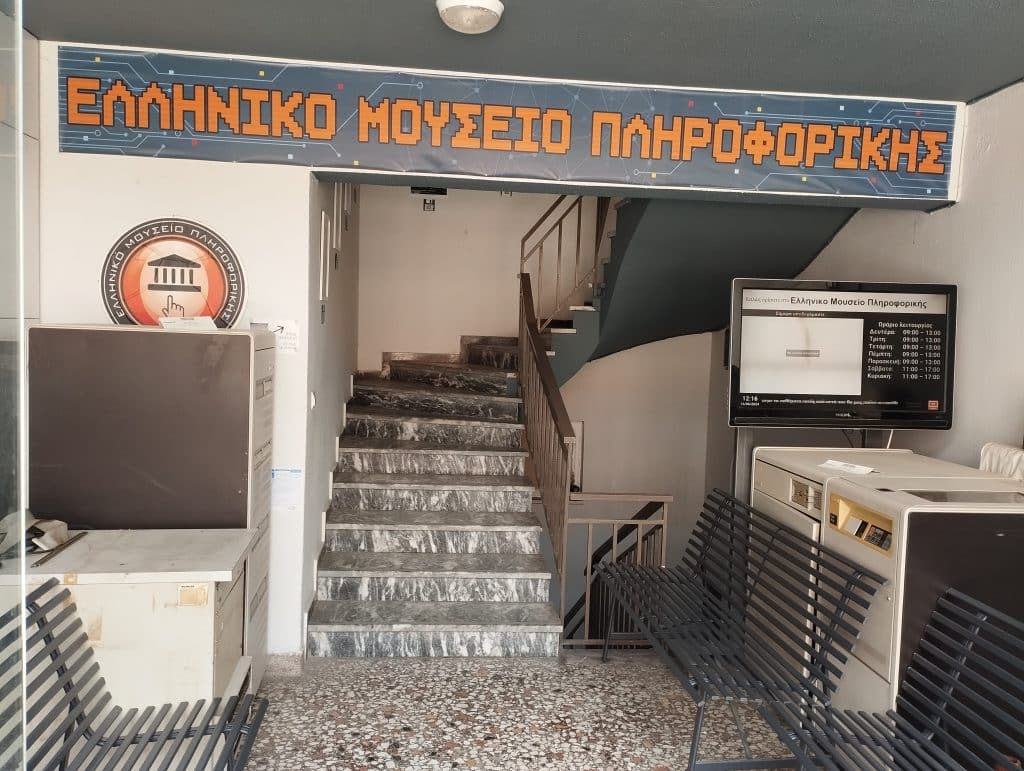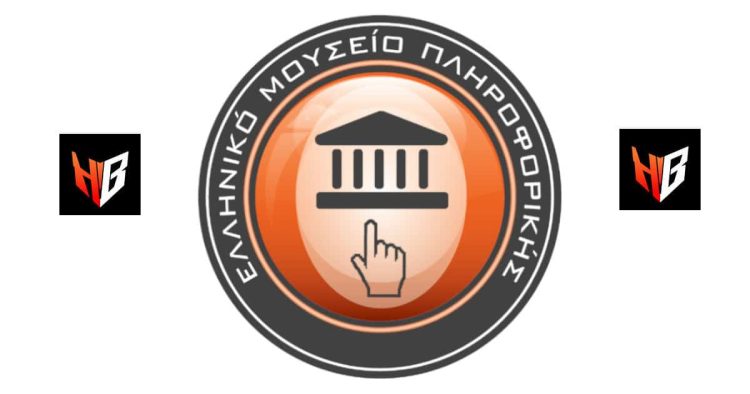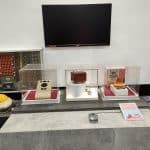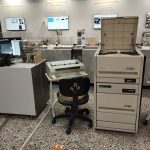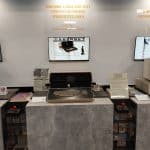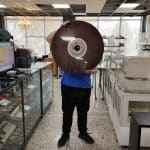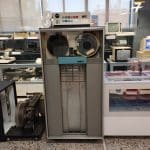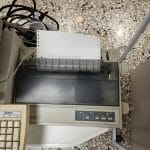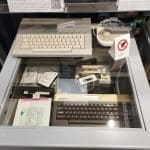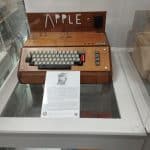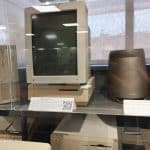ABOUT Hellenic IT Museum®
Hellenic IT Museum®, the biggest IT Museum in Southeast Europe, started its operations in 2008. Since 2012 the Museum has constituted the first official Greek organization that exclusively exhibits the IT history timeline from 1970 to the mid-90s.
Address: Petrou Spiropoulou 2 & Thessalonikis, Moschato, Greece
Telephone: 210 300 70 10
E-mail: info(at)elmp.gr
Working hours: Monday to Friday: 09:00-13:00, Saturday and Sunday: 11:00-17:00
Tickets (and e-tickets):
- General fee: 4€
- Undergraduate: 3€
- Children under six years old: Free
- Schools: 3€
- Maximum number of visitors/tour: 40 persons
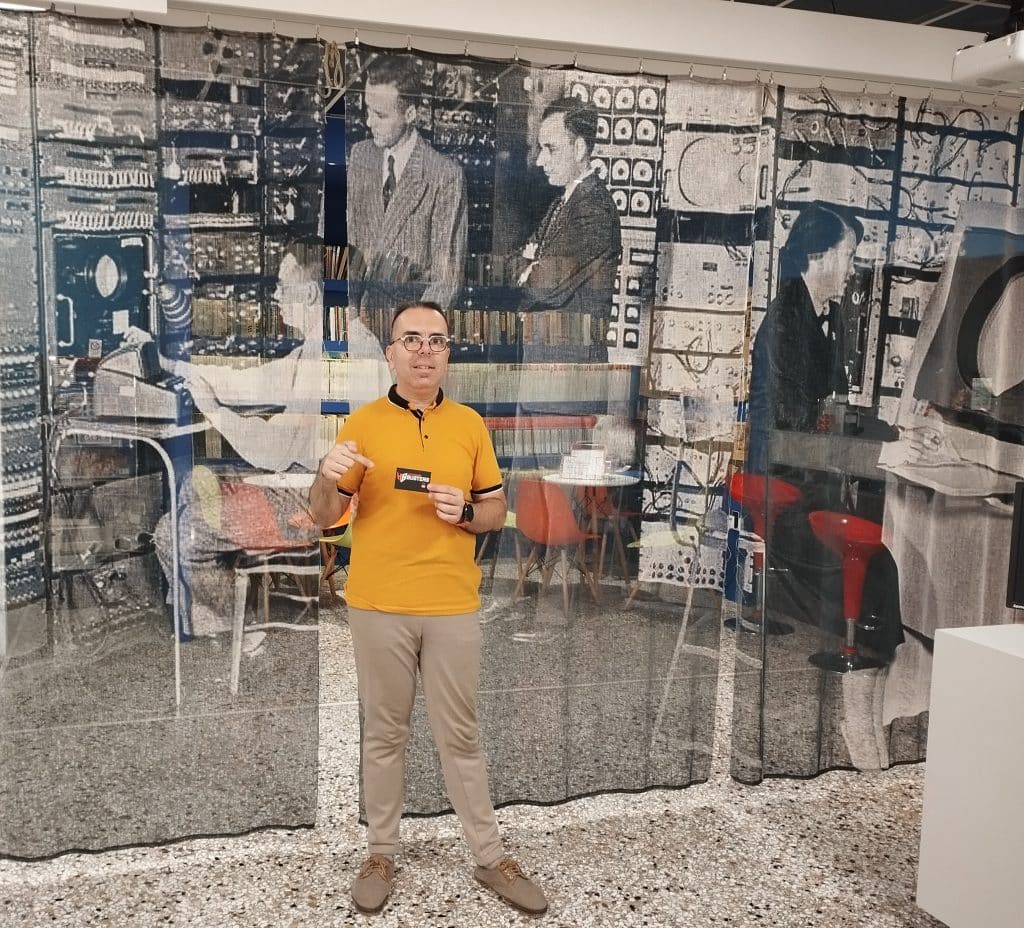
“If you want to understand the future better, you should learn about the past.” This proverb describes humanity’s history and, consequently, its technological advancements. To understand and value humanity’s technological accomplishments, we should look at our past and how it all started. And in the computer segment, it all started with the first and, until now, the best of its kind: the human brain! This excellent, non-artificial, nature’s achievement computer. And it took eons and millennia for humans to recreate something that was not so perfect but rather an excellent companion. From rather plain calculating machines to more complex ones and, as a result, modern-day computers. And the future is promising as well.
But how can we still get a better idea and value of how it all started and progressed in technology segment? The answer is simple: museums. Museums worldwide hold the key to human history in every aspect of our lives. Fortunately for us, there are IT museums that keep the technological treasures of humanity accessible to the public. I can’t stress enough the importance of their deeds. Greece is among the countries that have a rich history, so museums are essential to valuing it better. The National Acropolis Museum is one of the most well-regarded worldwide. But is there a way for a tech enthusiast to learn more and value better the worldwide achievements of IT and computer science in Greece?
Hopefully, it is, and Hardware Busters will respectfully take the tour with you to the Hellenic IT Museum. In an accessible part of the town of Moschato (Athens, Greece), the Hellenic IT Museum (Eλληνικό Μουσείο Πληροφορικής, Εlliniko Μοοsio Pliroforikis) holds the key to past IT knowledge (and nostalgia). The museum is easy to locate and is near Moschato train station, thus making it easily accessible for anyone. We visited the IT museum on Sunday, as it is the most versatile option for anyone to explore.
Mr. George Tsekouras (Γεώργιος Τσεκούρας, Yeorghios Tsekouras), the museum’s founder and president, accommodated us. I was glad to see that he is not only a person with deep knowledge of the IT segment but also passionate about his museum. I get bored of academic people who see their job as only this, so meeting an enthusiast who loves it pleasantly surprised me.
Mr. Tsekouras started the museum mainly because of his passion for IT and as a way to communicate the achievements of the past to the newer generation and for the older ones to remember. He also notes that it was challenging, but he established his museum by believing in it and through his own efforts. His efforts bore fruit, judging by the result. The Hellenic IT Museum® is regarded as Southeast Europe’s most prominent IT museum, and for good reason. It holds a wide variety of exhibits, making it one of the most complete of its kind, and most of them are donated to the museum by organizations or private collectors.
It is also a member of the Athens Culture Net and operates under the aegis of the Hellenic Ministry of Digital Governance. The museum offers an educational app for Android and iOS, and it is affiliated with the RCG Computer Museum of Cyprus and the Software Computer Museum of Ukraine. The Hellenic IT Museum hosts a collection of more than 280 personal computers and 5100 other IT-related items, thus making it the most up-to-task of its kind in Greece and Southeast Europe. In its facilities, visitors are greeted with an extensive and comprehensive tour. They are offered the chance to interact with older hardware and even games on arcade consoles if they wish to.
But for the most hardcore enthusiasts, there are exciting displays such as a replica of the first mouse (Engelbart’s patented X-Z pointing device), punched cards, a copy of the Antikythera mechanism, a replica of the Apple-1 personal computer kit, etc. It is such an extensive list that it is nearly impossible to include it thoroughly in this article. It offers a collection of Amstrad, Commodore, and Amiga computers for the nostalgic ones. So, you realize that would cover any enthusiast’s dream. The newest generation will learn from and value the past, thus making it the perfect destination for educational purposes and schools.
The museum started its journey back in 2008 and, since 2012, has been established as the first official institution in Greece to gather knowledge about the development of IT from 1970 to the mid-1990s. The museum has grown strong for more than 16 years and hopefully will grow even stronger in the following years. Initiatives like these need to continue to offer their lights and knowledge to the public. If you ever go sightseeing in Greece, you should definitely visit the Hellenic IT Museum. For natives, especially Athenians, there is no excuse for not visiting it; they should at the first chance.
The museum hosts a website where you can find more information about it or even take a digital tour if you wish to. You can even become a “Museum’s Friend” for a low annual fee, supporting the project actively and obtaining exclusive benefits. You can also contact the museum via e-mail or telephone if you have a device to donate. I visited the museum for the first but definitely not for the last time. I highly advise you to visit it, too, if you are ever given the chance. It is definitely worth your time.
We wish mr. George Tsekouras and his team the best and hope they continue to grow even stronger in the following years. The Hellenic IT Museum bridges the past with the future of technology in Greece. We should reward and actively support projects like these in the best way possible. It is an essential “back to the future” tour for any tech enthusiast. Keep the IT spirit alive!
